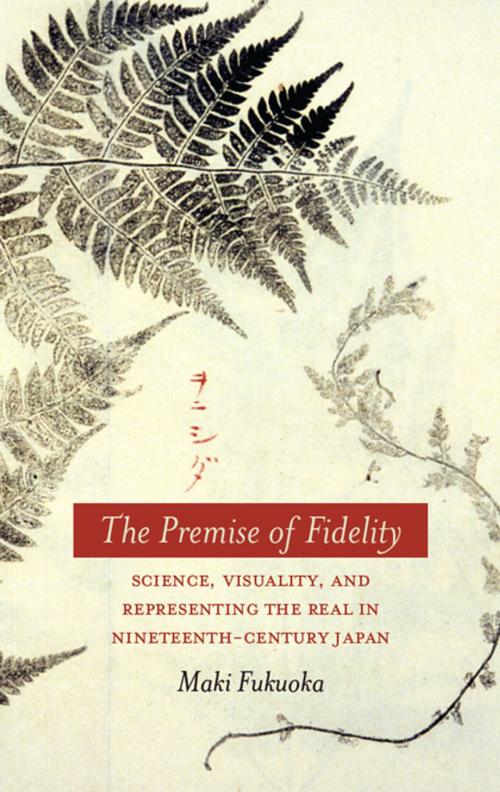The Premise of Fidelity
Science, Visuality, and Representing the Real in Nineteenth-Century Japan
Nonfiction, History, Asian, Japan, Art & Architecture, General Art, Art History| Author: | Maki Fukuoka | ISBN: | 9780804784627 |
| Publisher: | Stanford University Press | Publication: | August 15, 2012 |
| Imprint: | Stanford University Press | Language: | English |
| Author: | Maki Fukuoka |
| ISBN: | 9780804784627 |
| Publisher: | Stanford University Press |
| Publication: | August 15, 2012 |
| Imprint: | Stanford University Press |
| Language: | English |
The Premise of Fidelity puts forward a new history of Japanese visuality through an examination of the discourses and practices surrounding the nineteenth century transposition of "the real" in the decades before photography was introduced. This intellectual history is informed by a careful examination of a network of local scholars—from physicians to farmers to bureaucrats—known as Shōhyaku-sha. In their archival materials, these scholars used the term shashin (which would, years later, come to signify "photography" in Japanese) in a wide variety of medical, botanical, and pictorial practices. These scholars pursued questions of the relationship between what they observed and what they believed they knew, in the process investigating scientific ideas and practices by obsessively naming and classifying, and then rendering through highly accurate illustration, the objects of their study. This book is an exploration of the process by which the Shōhyaku-sha shaped the concept of shashin. As such, it disrupts the dominant narratives of photography, art, and science in Japan, providing a prehistory of Japanese photography that requires the accepted history of the discipline to be rewritten.
The Premise of Fidelity puts forward a new history of Japanese visuality through an examination of the discourses and practices surrounding the nineteenth century transposition of "the real" in the decades before photography was introduced. This intellectual history is informed by a careful examination of a network of local scholars—from physicians to farmers to bureaucrats—known as Shōhyaku-sha. In their archival materials, these scholars used the term shashin (which would, years later, come to signify "photography" in Japanese) in a wide variety of medical, botanical, and pictorial practices. These scholars pursued questions of the relationship between what they observed and what they believed they knew, in the process investigating scientific ideas and practices by obsessively naming and classifying, and then rendering through highly accurate illustration, the objects of their study. This book is an exploration of the process by which the Shōhyaku-sha shaped the concept of shashin. As such, it disrupts the dominant narratives of photography, art, and science in Japan, providing a prehistory of Japanese photography that requires the accepted history of the discipline to be rewritten.















